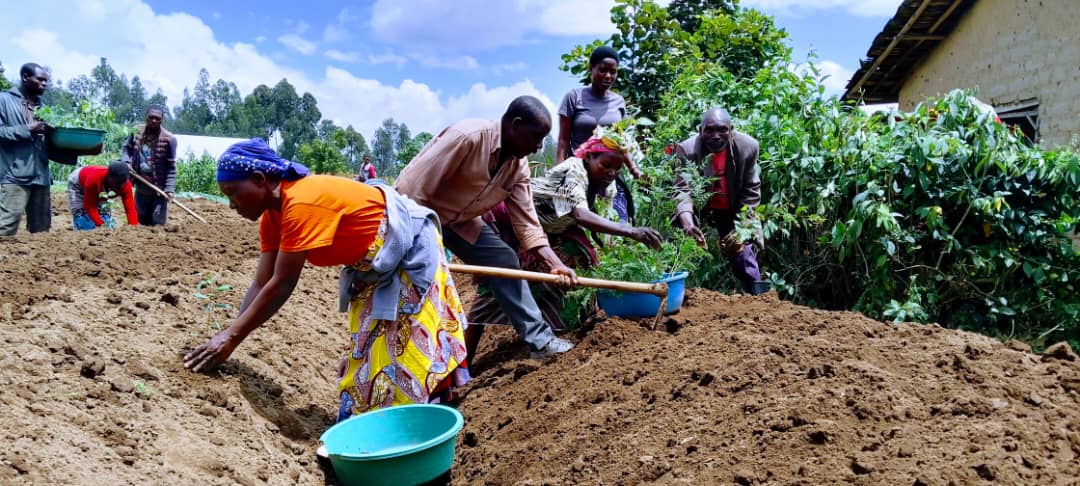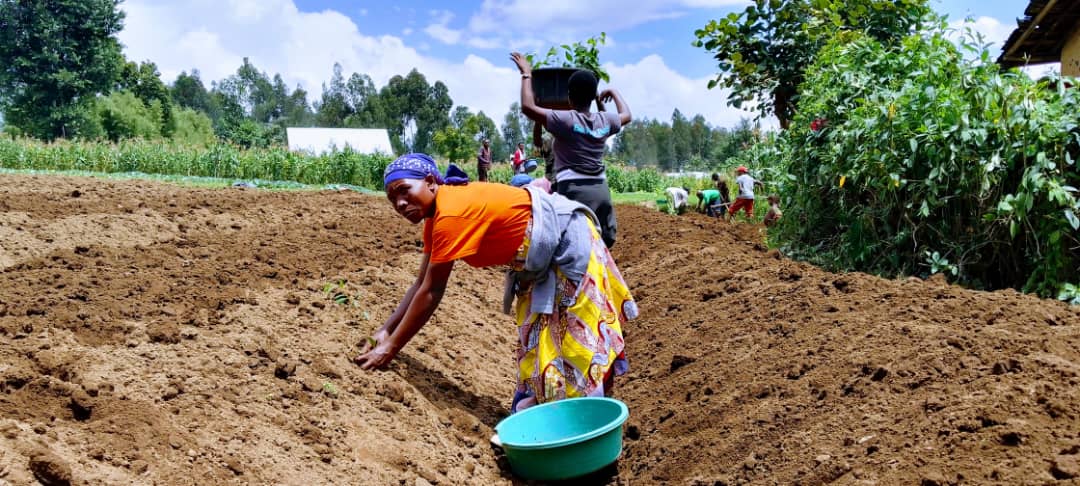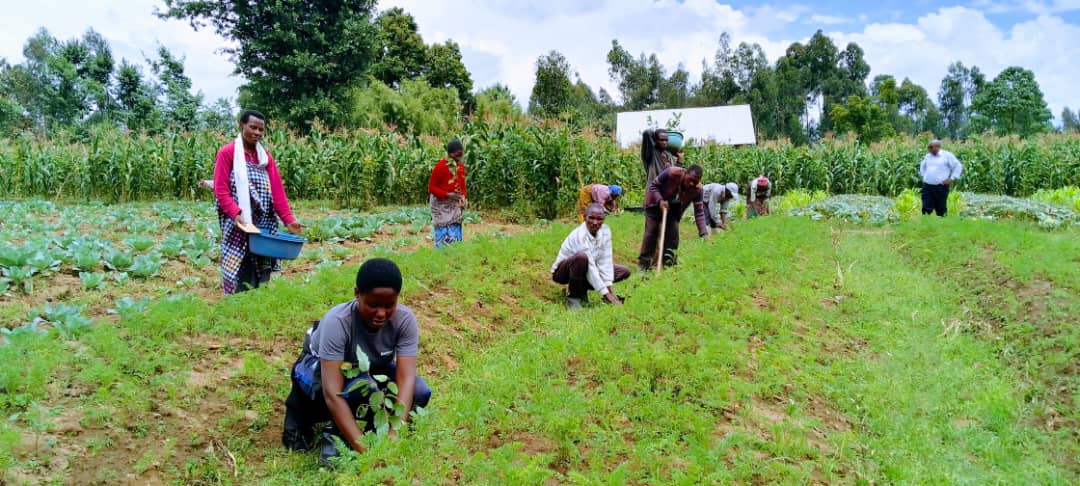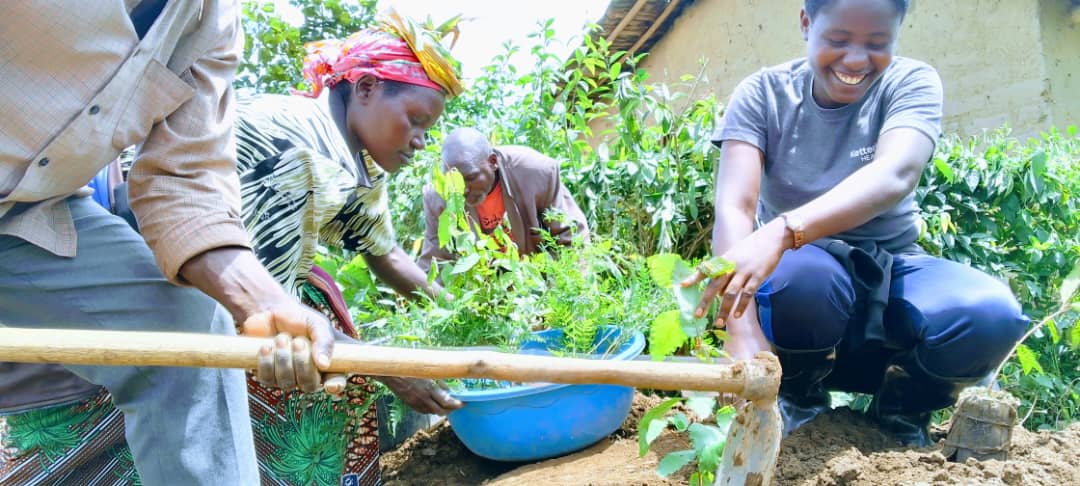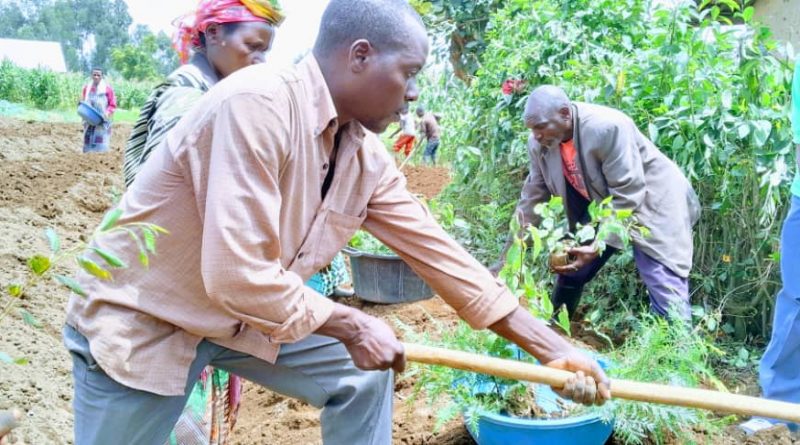ACORD Rwanda Plants Traditional Trees to Promote Agroecological Farming
The families associated with ACORD Rwanda, comprising individuals trained in advancing agroecology, embarked on a project to promote traditional agroforestry by planting indigenous trees mixed with crops, aimed at conserving their sovereignty and ensuring their historical significance.
A total of more than 3500 indigenous trees are being planted per hectare across 2 hectares in Murago cell of Gataraga Sector, comprising different types that include trees with natural pesticides to combat pests, as well as those that enhance soil productivity such as Desmodium, Pennisetum purpureum, Calliandara, Grevillea, Alnus, and cedrela adorata.
Advocates of this initiative see it as crucial in conserving land and biodiversity, known as Agroecology, while reducing reliance on costly inputs such as synthetic fertilizers and pesticides.
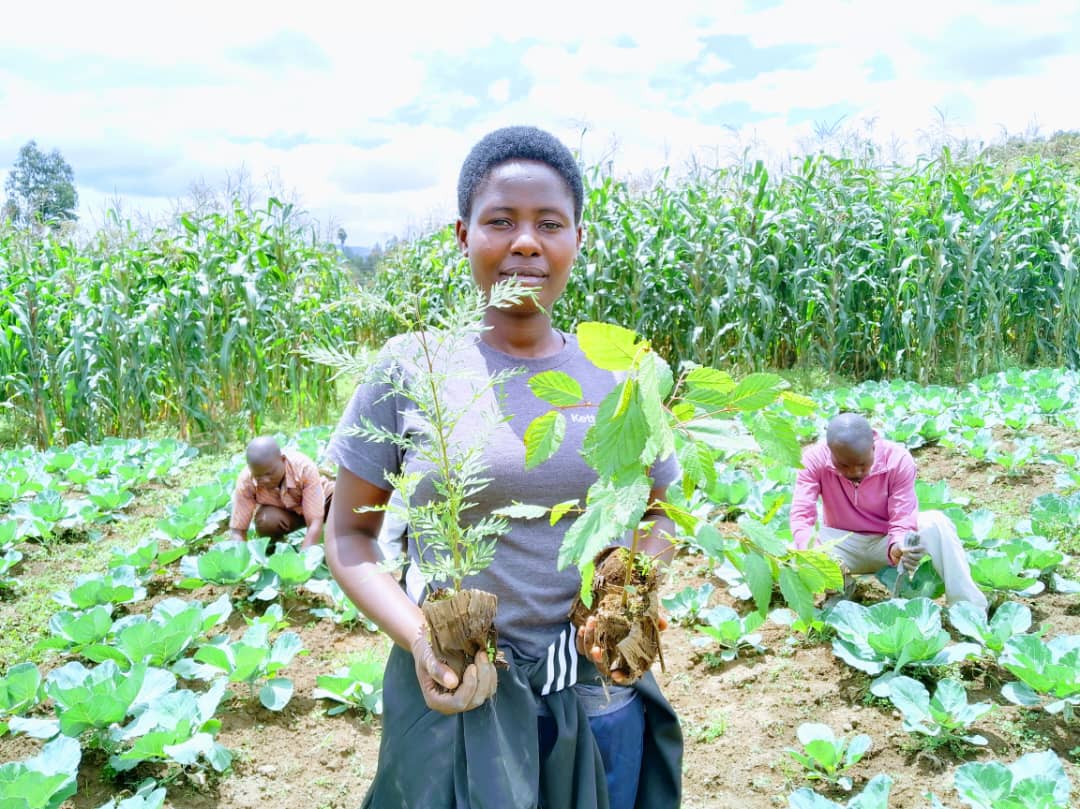
Immaculate Dushimimana, an agronomist at ACORD Rwanda in the Musanze district, emphasized the importance of cultivating diverse indigenous crops, which not only enrich biodiversity but also positively impact soil fertility and pest management.
She highlighted the significance of utilizing natural fertilizers such as compost to improve soil health and reduce production costs.
“We prioritize planting various species of trees, including indigenous ones like Erythrina abyssinica, to ensure that they grow well and contribute positively to sustainable agriculture. Some of these trees contain beneficial properties for farming, such as Vernonia amygoblina, and others with fast-growing abilities. Additionally, some of these trees support natural pest control methods. Examples include Tetradenia riparia, Bidens pilosa, Vernonia amygoblina, Ficus thonningii, among others.”
She further emphasized: “These trees are highly valuable, especially now when synthetic fertilizers are commonly used, causing health hazards and environmental degradation. Sometimes, the balance of soil nutrients is disrupted, and preserving essential trees helps maintain soil health. In the long run, these trees are essential for farmers’ sustainability, especially given the rising costs of synthetic fertilizers. Investing in natural fertilizers like manure is one way to reduce expenses.”
Among those involved in the Agroecology project at ACORD Rwanda are Ernest Musabyimana and Immaculee Nyirambarushimana, who believe that planting indigenous trees is crucial for ensuring food sovereignty and promoting sustainable land management practices that do not rely on external inputs like synthetic fertilizers and pesticides.
Jean Pierre Hakizimana, an agronomist from the Gataraga sector, stressed the importance of preserving indigenous crops to prevent biodiversity loss and maintain the well-being of ecosystems. He noted their role in oxygen production and soil conservation.
He stated, “Various indigenous plants have been selected for cultivation, including Erythrina abyssinica and Ficus thonningii. These plants play a vital role in soil conservation and carbon sequestration, and it is imperative that everyone contributes to their preservation.”
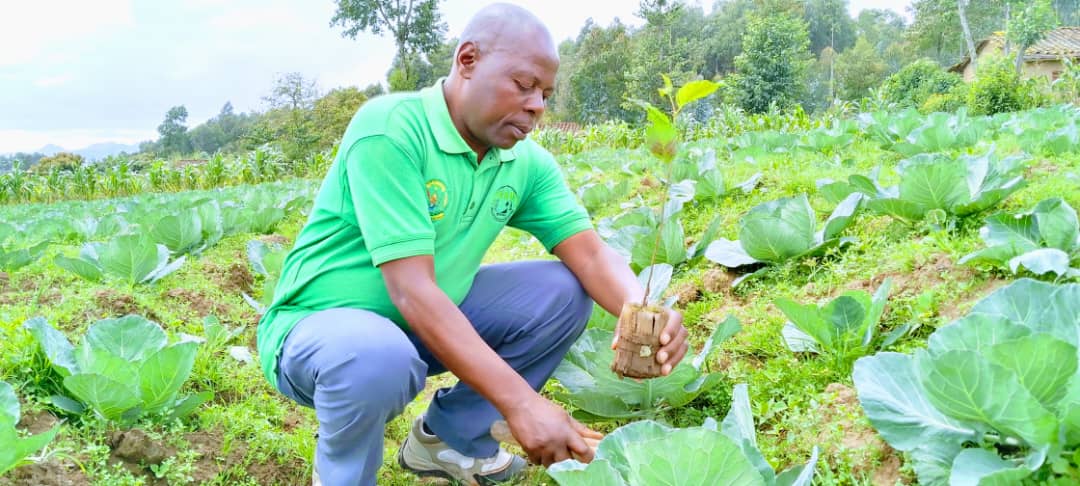
Agronomist Immaculee mentioned that 30,000 trees were planted in the previous year of 2023, while another 7,000 trees were planted from January to February 2024 in the Muko and Gataranga sectors, where ACORD Rwanda operates.
It is planned that another batch of 10,000 trees will be nurtured in their nurseries in the following months to promote Agroecology and traditional agricultural knowledge.
The selected indigenous tree species and their respective cultivation periods are as follows:
1: Umuravumba ( Tetradenia riparia)
2: Intomvu ( Loberia giberroa)
3: Umuruku ( Tephrosia vogelii)
4: Alnus( Alnus acuminata)
5: Umuko/igiko (Erythrina abyssinica)
6: Umubirizi(Vernonia amygoblina)
7: Munukanabi (tree marigold)
8: Kimbazi (Tiphonia diversifolia)
9: Umuvumu (Ficus thonningii)
10: Urubingo (Pennisetum purpureum)
11: Gereveriya ( Grevillea
12: Neem (Azadirachta indica)
13: Ikibonobono (Ricinus Communis)
14: Calliandara (Calliandara sp)
15: Umuvumburankwavu (Desmodium)
16: Inyabarasanya (Bidens pilosa)
17: Cederela (cedrela adorata)
